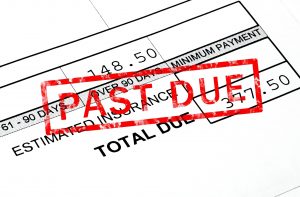What is Chapter 13 Bankruptcy?
A chapter 13 bankruptcy allows people with a regular income to repay all or part of their debts. The debtors propose a plan to pay their creditors in installments over three to five years.
Advantages of Chapter 13
This offers the following advantages:
- It offers debtors an opportunity to save homes from foreclosure. They can stop the proceedings and submit a plan to pay mortgage payments over time.
- Allows debtors to reschedule secured debts and extend for the period of the plan.
- Acts as a consolidation loan which will enable debtors to plan payments to a trustee who will then redistribute payments to creditors. The debtors will not have to contact the creditors under the protection offered by chapter 13.
Who is eligible for chapter 13 bankruptcy?
A self-employed individual or someone operating a small unincorporated business is eligible for chapter 13. This applies as long as the unsecured debts are less than $394,725 and the secured debts are less than $1,184,200. These amounts are modified periodically according to the changes in the consumer mass index, so make sure to keep abreast of these changes.
How chapter 13 works?
To begin filing a case, you have to file a petition with the court where you have domicile or residence. You must also file with the court:
- Schedules of your assets and liabilities
- Current income and expenditures
- Statement of your financial affairs
- Executory contracts and unexpired leases
- Tax information, including federal and unpaid taxes
The debtor must also show proof of credit counseling and the repayment plan developed. You can avail of these services from a non-profit credit counselor like churches, and government agencies or organizations can refer you to a counselor.
Make sure to consult with debt managers when making your repayment plan and that high-interest debt are paid off first before moving on to low-interest debts. In case you choose to form a debt consolidation plan, firms will work with your creditors to form it for a single monthly payment that will then be used to repay your debts.
If you have received any payment from your employers 60 days before filing, it has to be included in your statement. If married, you must gather this information regardless of whether the petition may be joint or individual. This also applies even if only the spouse was filing the petition.
Chapter 13 for small businesses
Only individuals are allowed to file a chapter 13 bankruptcy. But if you are the sole owner of your business, then there is a way for you to avail of chapter 13.
When you are the sole proprietor of a business, you are responsible for both the individual and business debts. This helps you to reorganize your financial debts and gives creditors a chance to be paid.
Depending on the properties you possess:
Exempt business properties
Most exemption statutes will allow you to keep a particular property, but it must be necessary to continue your employment. You will only be allowed to keep the minimal properties that you require.
Non-exempt business properties
If you have non-exempt properties, chapter 13 allows you to keep them until you pay off your debts. However, the repayment plan will include the value of your non-exempt assets.
According to chapter 13, your personal debts are not separate from your business debts. Debtors have to include everything when they file, and they will have to pay a minimal amount on the debts that do have collateral.
This is also beneficial if you ever end up responsible for business debt. Individuals regularly sign property leases as a personal guarantee for businesses and commercial establishments. If the company is no longer operational, It will remove you from any obligation to pay the debt.
For further information and to ensure a way to secure your financial future, schedule a complimentary consultation with The Wright Law Alliance. We have over 25 years of experience helping Georgia residents successfully navigate bankruptcy and help individuals and companies get back on their feet. Call us this week.


Leave A Comment